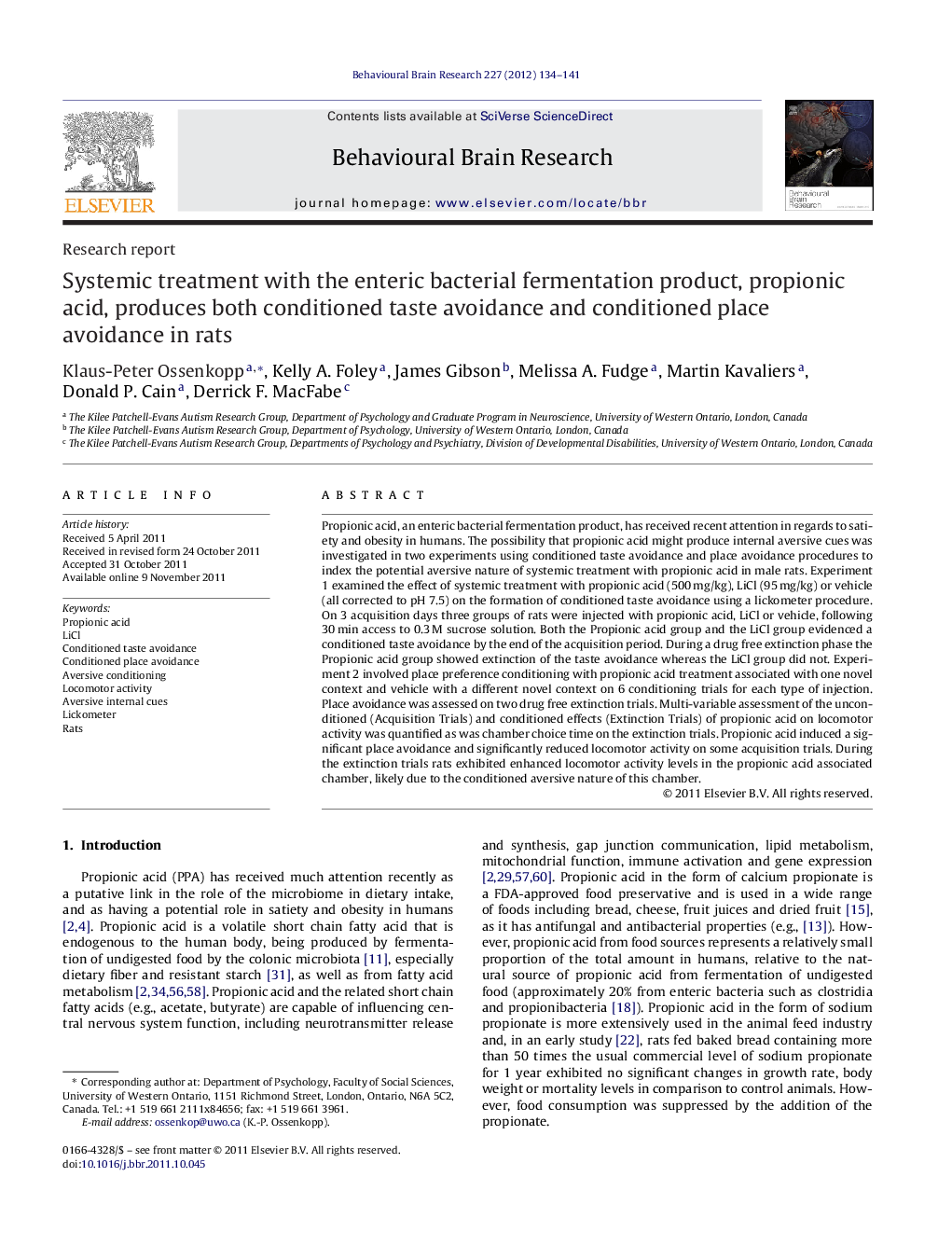| Article ID | Journal | Published Year | Pages | File Type |
|---|---|---|---|---|
| 4313394 | Behavioural Brain Research | 2012 | 8 Pages |
Propionic acid, an enteric bacterial fermentation product, has received recent attention in regards to satiety and obesity in humans. The possibility that propionic acid might produce internal aversive cues was investigated in two experiments using conditioned taste avoidance and place avoidance procedures to index the potential aversive nature of systemic treatment with propionic acid in male rats. Experiment 1 examined the effect of systemic treatment with propionic acid (500 mg/kg), LiCl (95 mg/kg) or vehicle (all corrected to pH 7.5) on the formation of conditioned taste avoidance using a lickometer procedure. On 3 acquisition days three groups of rats were injected with propionic acid, LiCl or vehicle, following 30 min access to 0.3 M sucrose solution. Both the Propionic acid group and the LiCl group evidenced a conditioned taste avoidance by the end of the acquisition period. During a drug free extinction phase the Propionic acid group showed extinction of the taste avoidance whereas the LiCl group did not. Experiment 2 involved place preference conditioning with propionic acid treatment associated with one novel context and vehicle with a different novel context on 6 conditioning trials for each type of injection. Place avoidance was assessed on two drug free extinction trials. Multi-variable assessment of the unconditioned (Acquisition Trials) and conditioned effects (Extinction Trials) of propionic acid on locomotor activity was quantified as was chamber choice time on the extinction trials. Propionic acid induced a significant place avoidance and significantly reduced locomotor activity on some acquisition trials. During the extinction trials rats exhibited enhanced locomotor activity levels in the propionic acid associated chamber, likely due to the conditioned aversive nature of this chamber.
► Propionic acid is produced by colonic bacteria and suggested to play a role in satiety and obesity. ► Systemic (intraperitoneal) propionic acid conditions a taste avoidance. ► Systemic propionic acid conditions a place avoidance. ► Systemic propionic acid induces aversive internal cues and may activate the poison defence system.
